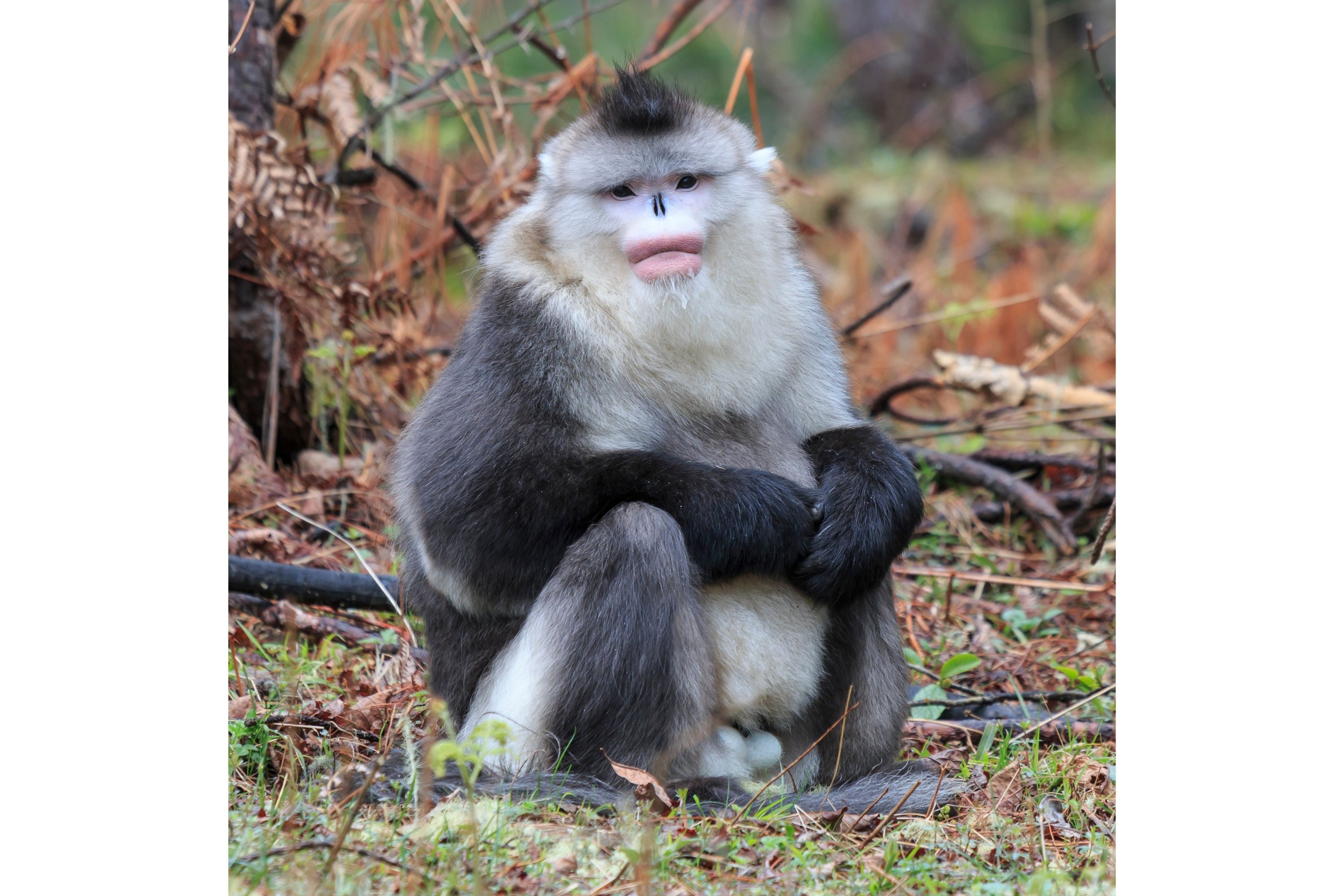Tonkin snub-nosed monkey
(Rhinopithecus avunculus)

Description
The Tonkin snub-nosed monkey or Dollman's snub-nosed monkey (Rhinopithecus avunculus) is a slender-bodied arboreal Old World monkey, endemic to northern Vietnam. It has black and white fur, a pink nose and lips, and blue patches around the eyes. It is found at elevations from 200 to 1,200 m (700 to 3,900 ft) on fragmentary patches of forest on craggy limestone areas. First described in 1912, the monkey was rediscovered in 1990 but is exceedingly rare. In 2008, fewer than 250 individuals were thought to exist, and the species was the subject of intense conservation effort. The main threats faced by these monkeys are habitat loss and hunting, and the International Union for Conservation of Nature has rated the species as "critically endangered". The Tonkin snub-nosed monkey has a flattened face with a pink upturned nose, thickened pink lips and areas of blue skin around its eyes. The upper parts are black, the underparts creamy-white and there is an orange patch on the throat, particularly obvious in breeding males. The tail has a white tip. Its head-and-body length is 51 to 65 cm (20 to 26 in) and its tail 66 to 92 cm (26 to 36 in). Females weigh about 8 kg (18 lb) while males weigh 14 kg (31 lb). Juveniles are grey rather than black and lack the orange throat patch. The Tonkin snub-nosed monkey is diurnal and its diet consists of a range of leaves, fruits, flowers and seeds. It moves about the canopy in small groups. Recorded at elevations between 200 and 1,200 m, its distribution is currently restricted to small fragmented tropical evergreen forests associated with steep karst limestone hills and mountains. Five isolated extant populations have been identified since its rediscovery. Despite being heralded as a flagship species and subsequently receiving international attention and conservation actions, the population trend is still declining. Habitat loss and hunting are some of the major causes for declines of naturally occurring populations of non-human primates, including the Tonkin Snub-nosed monkey. Decades of expanding human population and increasing demands for scarce agriculturally viable lands have led to the loss and fragmentation of the monkey's habitats. Many people around the world thought the bones of the Tonkin snub-nosed monkey had some “medicinal” benefits that help improve the conditions of the body.
Taxonomic tree:







